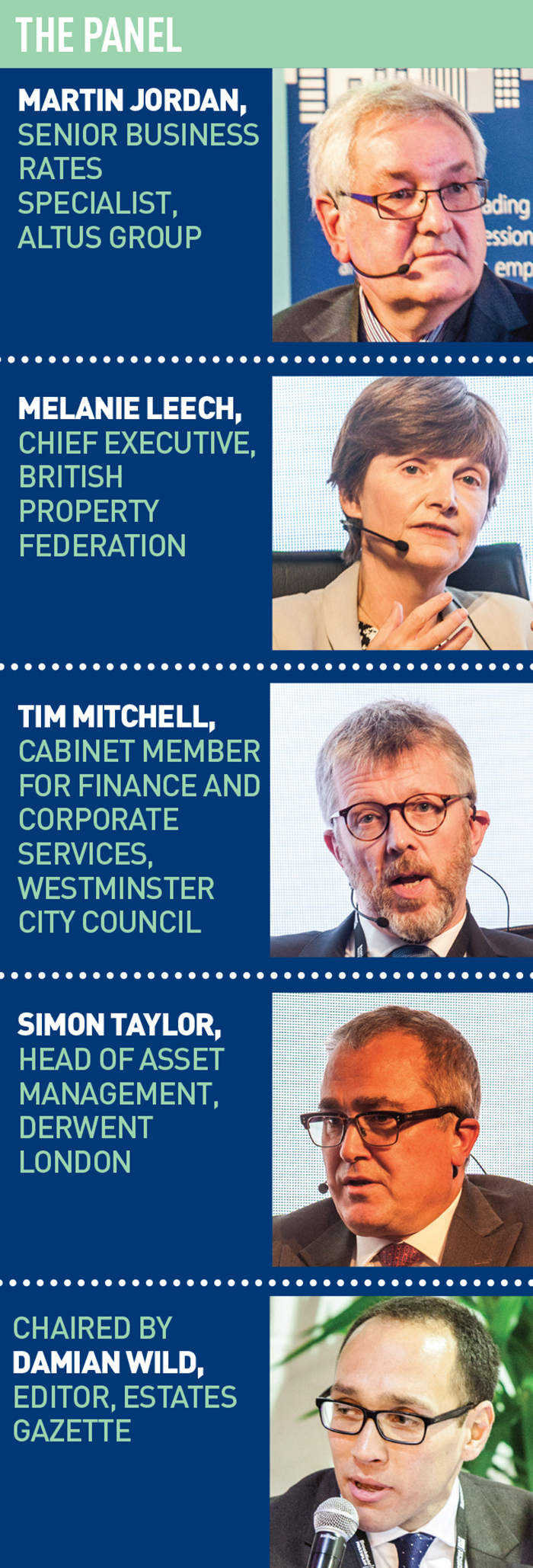 Industry figures from the British Property Federation, UK plc and advisers responded to plans to dramatically shake-up the business rates systems during an Estates Gazette debate entitled Are business rates unfair or merely unresponsive, inflexible and unpredictable? at MIPIM UK last week.
Industry figures from the British Property Federation, UK plc and advisers responded to plans to dramatically shake-up the business rates systems during an Estates Gazette debate entitled Are business rates unfair or merely unresponsive, inflexible and unpredictable? at MIPIM UK last week.
Under plans announced by chancellor George Osborne in the last budget, councils are to be given the power to retain 100% of locally raised business rates, rather than handing over half to central government.
The full details have yet to be revealed, leading Tim Mitchell, cabinet member for finance and corporate services at Westminster city council, to urge industry leaders to lobby the government to get a new deal.
Melanie Leech, chief executive of the British Property Federation, agreed that the impact of business rates devolution was uncertain, but believed the pending reforms would not address the system’s “fundamental flaws”.
Highlighting the 100% empty rates tax, she said there was no other “unfair” tax where what you pay is not conditional on what you earn.
She welcomed the chancellor’s announcement to devolve powers to local authorities, giving them greater power to leverage economic growth, but said greater reform was needed of a system which “takes no account of wider economic circumstances or the individual performance of businesses”.
Further reforms promised by government include changes to reduce the number of appeals and delays in settling business rates via the Enterprise Bill 2015.
Martin Jordan, senior business rates professional at Altus Group, said the rates appeal system was in crisis, with businesses needing more information about how valuations were calculated in order to launch successful appeals.
He said the backlog was so bad that getting space on a tribunal list was a “lottery ticket”.
Simon Taylor, head of asset management at Derwent London, said he wanted to see a rates system that encouraged economic growth.
“We feel business rates are a constant struggle and it doesn’t need to be that way,” he said. Taylor wanted to change how the system is delivered around struggling high streets instead of introducing a blanket reform.
It has been estimated that the decentralisation of tax-raising, giving councils a degree of control over the setting of rates and the ability to retain them, could hand £26bn in collected rates to local authorities, although this figure would be massively skewed towards certain councils.
Panellists raised concerns about further inequality resulting from councils keeping 100% of business rates, disadvantaging poorer regions and benefiting richer ones. Westminster city council, for example, is set to receive the largest volume of receipts as a result of the changes.
However, Mitchell did not believe that would happen. He expects “checks and balances” to be put in place so local authorities which lose out are compensated.











